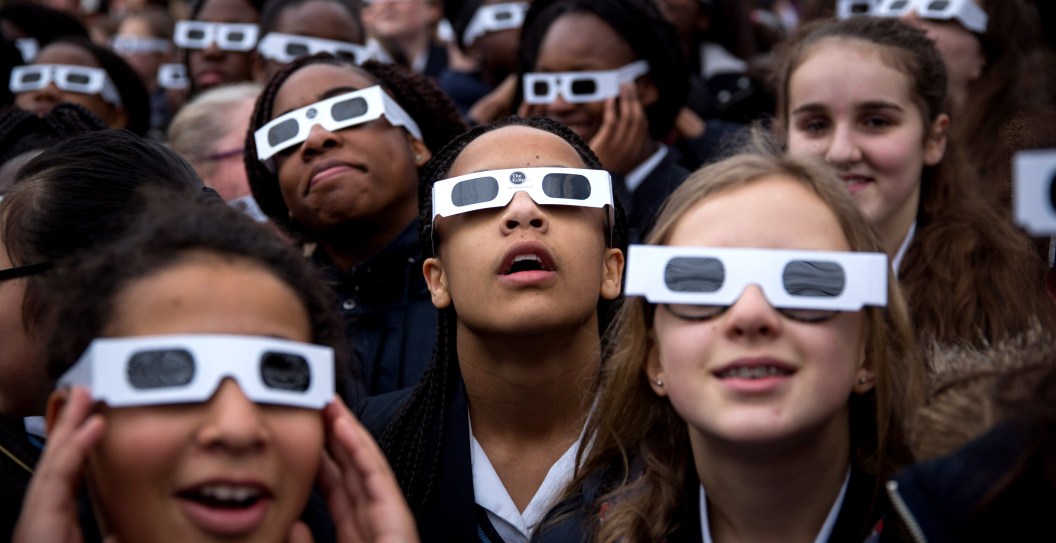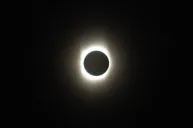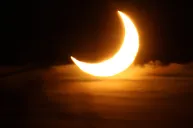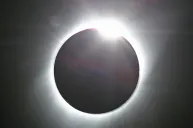It's safe to say that some people don't learn. Search results for "Why do my eyes hurt?" and "My eyes hurt" spiked following the solar eclipse. Some people are experiencing eye pain.
Videos by Wide Open Country
?#BREAKING: Search results for ?Why do my eyes hurt?? and ?My eyes hurt? have exploded after the total solar eclipse occurred pic.twitter.com/qYl3cBvwBr
— R A W S A L E R T S (@rawsalerts) April 8, 2024
One person wrote on social media, "Don't look at the sun. Proceeds to look at the sun anyways." Another wrote, "Natural selection strikes again." Still, another wrote, "I remember from 2017. Even with the special goggles, my eyes felt like they were on fire for the next three days this time around I only looked maybe 30 seconds."
According to the Weather Channel, one can seriously damage their eyes by looking at a solar eclipse. That's why one should wear protective eyeglasses when viewing a solar eclipse. "My advice is to not look at the sun, because you may not realize that it is affecting your retina," ophthalmologist Avnish Deobhakta said via the outlet. "It does not hurt. It doesn't burn at the time. It's not as if you feel it."
Why Do My Eyes Hurt After Solar Eclipse
Symptoms of eye damage include blurry vision, a blind spot, increased sensitivity to light, headaches, and distorted vision. While solar retinopathy will usually go away, it can sometimes be permanent. One woman experienced permanent eye damage following the 2017 solar eclipse. She had a burn on her retina.
If you're experiencing issues, then you should see a doctor. "Even though this is an exciting and rare event, you don't want to damage your vision for the rest of your life by not protecting your eyes," Dr. Nicole Bajic, a surgical ophthalmologist with the Cleveland Clinic, told the Miami Herald.
Likewise, one can damage their eyes in just seconds. It takes about 100 seconds to damage a person's eyes.
"Even a few seconds of viewing the sun during an eclipse can temporarily or permanently burn the macula," doctors wrote on the Journal of the American Medical Association website. "Once retina tissue is destroyed, it cannot regenerate, resulting in permanent central vision loss."
"Even when 99% of the sun's surface (the photosphere) is obscured during the partial phases of a solar eclipse, the remaining crescent sun is still intense enough to cause a retinal burn," NASA wrote on its website. "Note, there are no pain receptors in the retina so your retina can be damaged even before you realize it, and by then it can be too late to save your vision."




